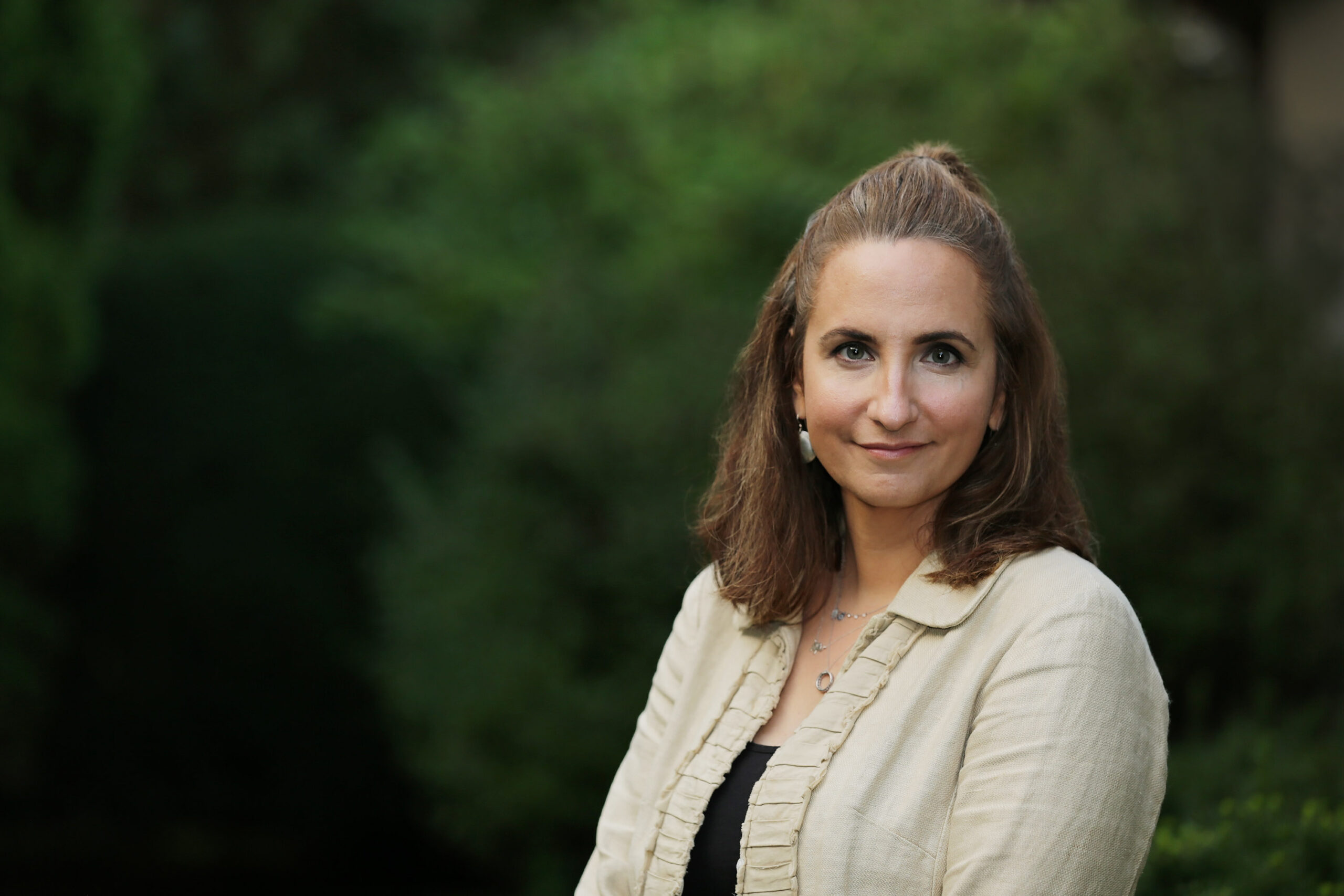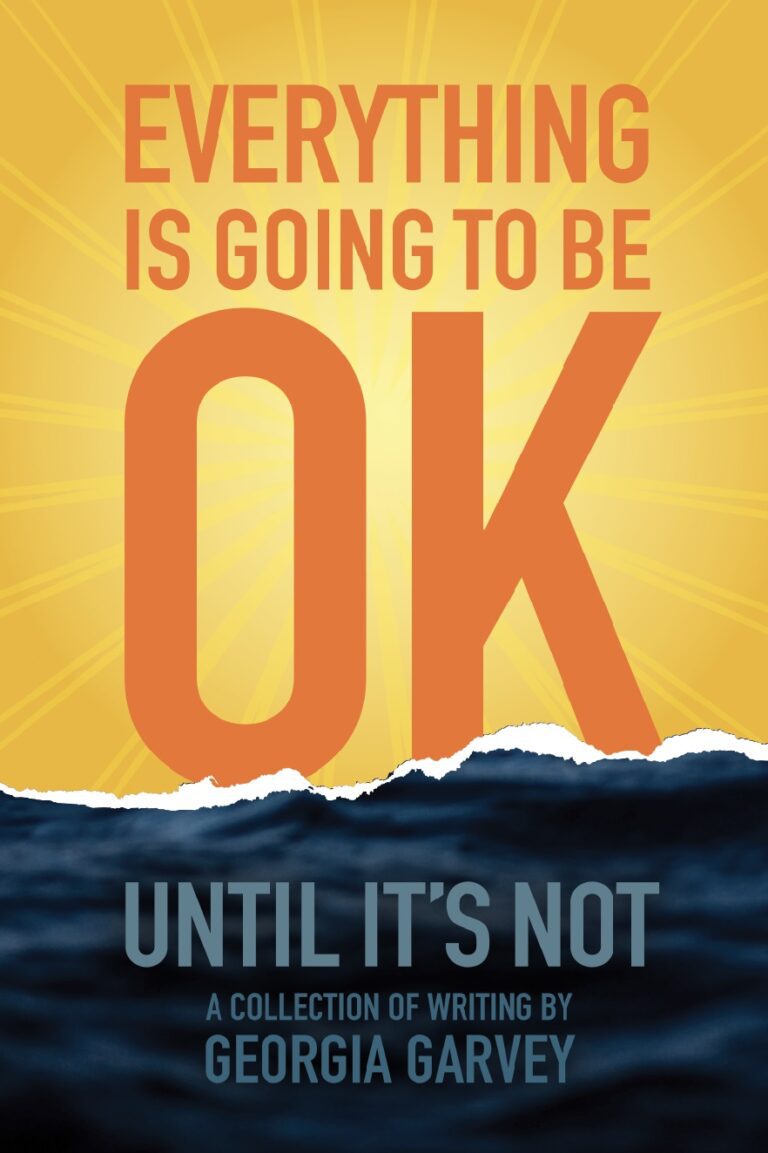The phrase “everything is Greek to me” is often used to refer to complicated things that people cannot understand. Yet for the award-winning columnist and former Chicago Tribune According to editor Georgia Garvey, her identity as a first-generation Greek immigrant not only influences her writing, but also helps her connect with readers across differences and allows them to better understand her point of view.
Inside Garvey’s incredibly insightful, personal, and sometimes hilarious new book Everything will be fine (until it isn’t)her columns are compiled for the first time in a collection that covers everything from how parents survived pandemic lockdowns and why we should trust scientists, to the oddities of Greek holidays and memories of her grand- mother, whom she calls her “most ardent protector” (her) Greek goddess avenger of a Yia-Yia.
The following conversation has been edited for length and clarity.
You talk a lot about your Greek heritage, which I appreciate as a fellow Greek-American! How has your Greek identity influenced your love of storytelling and the topics you choose to write about in your columns?
I write a lot about Greece and being Greek. This is one of the themes of my writing, one of the things that differentiates me from other columnists. There is a unique perspective one has when growing up between two cultures, feeling somewhat like an outsider in both. From the earliest times that I can remember, I read Greek stories. Storytelling is a very important part of Greek culture, it is a fundamental part of who we are as a people. No matter where you go in Greece, or even if you are in the United States, there are Greeks who come together to tell stories about things that happened in their time or things that happened in the pass. There is something that truly unites us as a people. , around stories. And that has always been very important to me. (…) When I grew up, I felt a little weird because of the food we ate and the way we talked, and what our vacations were as opposed to what some of my other friends did . But then you get older and you start to realize: It’s the things that set you apart that are the best parts of you. And so you start to appreciate these things more and more.

Author Georgia Garvey, photo credit Stacey Wescott
All columns in this book are from the “pandemic years” (2020 onwards) to present, except for the first column: a heartfelt and moving article about your fertility struggles, childbirth of your first son and your relationship with your Yia-Yia. Why did you decide to start the collection with this one?
It was one of the first columns I wrote for the Chicago Tribune, and I decided to include it because I really wanted to have a representation of me as a columnist. I couldn’t have this without including this first piece, because it is a monumental part of my life. My grandmother – her name is Katerina and I dedicated the book to her – she continues to play a very important role in my life, even though she passed away some time ago. That’s why I wanted to include it. (…) Then, after leaving the Tribune and I started writing the weekly syndicated column, most of these columns are included. So the early days of the pandemic are depicted, a lot of things related to the pandemic, but then it started to change and became a little bit more like normal life, whatever that was.
In this regard, the pandemic years have been tumultuous in many ways. Which columns have been most meaningful to you, in terms of the impact they had on you personally, in working on a topic, or in terms of the feedback you received from readers?
Well, I used to get a lot of hate mail (she laughs) and I don’t get as much now as I did at the beginning! But the article that I think received the most positive response was the one I wrote at the start of the pandemic (“Why are we in quarantine? We save the lives of people we will never meet“). I’m sure you remember that there was a lot of discussion about the question: “Why are we isolating and wearing masks?” The only people who die from COVID are old people, sick people, or people who are about to die anyway. And it was really important for me to talk about my experience with my grandmother, when I had the chance to see her after she had several strokes and was very ill. But before she died, I had the chance to see her and ended our relationship. I wanted to reiterate to people that life has value and it doesn’t matter if the person has one more day, one minute or ten more years. This is something we should fight to preserve. This is the column I wrote that was the most meaningful to me (…) but I also received positive feedback on things I wrote about my children, people really appreciating that I Don’t sugarcoat what it’s like to be a parent. Most of the impressions we get from social media are that everyone’s lives are so perfect and everyone is always going on vacation, having fun and eating nice dinners – and the reality is that we all live sometimes messy lives , sometimes brilliant. . I think it’s important to be honest about this.
If your Yia-Yia were still here with us, what do you think she would say about your book?
I’m sure she would be delighted and proud. I know she would have an opinion on something…you know, there would be something she wouldn’t like about the title, the cover, the color or whatever. I’m sure she would have an opinion on that! But deep down, I know she would be really proud, and I’m happy to think that in some way she understands what’s going on. And I hope she smiles.
It is a beautiful tribute to dedicate the book to Katerina. As they say in Greek, aionia and mními. May his memory be eternal.
Garvey will speak about his book and his career as a journalist at the Book Stall in Winnetka on Thursday, January 18 at 6:30 p.m. Free registration is available. online here.
Georgia Garvey Everything will be fine (until it isn’t) was published by Creators Publishing in September 2023 and is available at your local independent bookstore or at publisher’s website.
Did you enjoy this article and our coverage of the Chicago art scene and sometimes beyond? Please consider supporting Third Coast Review’s arts and culture coverage by making a donation by PayPal. Choose the amount that works best for you and know how much we appreciate your support!
Elizabeth Niarchos Neukirch
Elizabeth Niarchos Neukirch is a Greek-American writer and public relations consultant for arts and nonprofit organizations in Chicago. His fiction, essays, and reviews have appeared in publications including Mississippi Review, Take ONE Magazine, The Sunlight Press, and The Daily Chronicle. Follow her on Twitter/X at @EJNeukirch and learn more at elizabethniarchosneukirch.com. Photo by Diane Alexander White.



